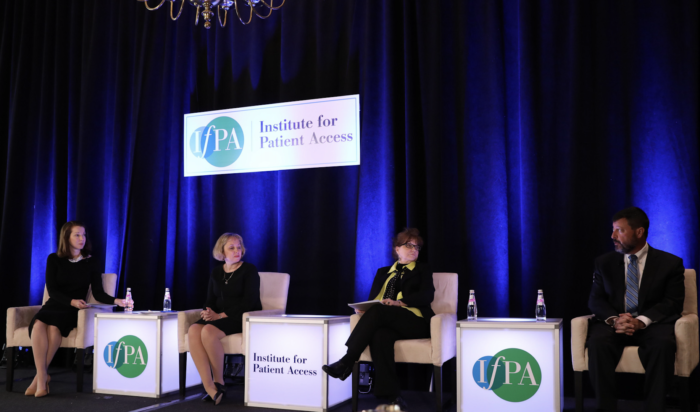What is medical innovation worth? To explore this question, the Institute for Patient Access recently convened health policy and patient advocacy professionals for the Value of Innovation Policy Forum in Washington, D.C.

In case you missed it, here’s a summary of the meeting in five quotes.
1. “My patients deserve to define value on their terms – to appreciate innovation for not only what it does for their health, but also for the meaning it brings to their daily lives.”
In his opening remarks, David Charles, MD, reminded attendees that, more often than not, patients’ definitions of medications’ value have nothing to do with money. They more often frame value as quality of life – feeling good enough to enjoy time with family and be productive at work, for example.
2. “We’re going to need more innovation in drug development for Alzheimer’s.”
Geriatrician Howard Fillit, MD, of the Alzheimer’s Drug Discovery Foundation emphasized that, while beta amyloid drugs might have some effect on disease progression, there’s also a need to look at the effects of aging – the leading risk factor for Alzheimer’s. Transferring what is known about aging into the therapeutics for Alzheimer’s will be essential.
3. “The reason we can debate whether the pandemic is over, is because of the vaccines.”
It took just 338 days from the time Chinese scientists revealed the sequence for a new coronavirus to the day an ICU nurse on Long Island became the first person in America to roll up her sleeve and get the shot. In his keynote address, author David Health provided the backstory to this feat and explained how vaccine science has changed forever.
4. “It’s hard for innovation to continue if it’s not paid for.”
Pam Traxel of the American Cancer Society Cancer Action Network implored policymakers to provide adequate payment for innovative diagnostics and treatments. For example, Medicare reimburses for only five types of cancer screening. It’s impossible to beat cancer if it’s not diagnosed – and doing that requires meaningful insurance coverage.
5. “My name is Emily Bonnell. I have CF, and I’m going to die.”
In the event’s closing video, parent and advocate Laura Bonnell described her daughter Emily as a kindergartener grappling with cystic fibrosis. Laura explained that the breakthrough drug that corrects the underlying condition that causes cystic fibrosis worked for only one of her daughters – Molly, not Emily. Laura advocates for continued innovation in hopes that both of her daughters will get to live.
Watch the recording of the event on IfPA’s website.

